
Ron May, 1956-2013
Ron May Digital Social Pioneer, and the notorious Chicago hightech commentator and analyst, died on 23 June 2013. Since I knew Ron longer and better than many people, I’ll reflect on what I knew of his life and considerable gifts and contributions. Above all, I’ll try to convey what Ron taught me about the digital world, where he was a pioneer among pioneers.
I met Ron in late 1996 in Dick Reck’s office at KPMG, when The May Report was fledging. It was obvious that he was unusually smart and passionate and motivated, and I learned that these traits were the foundation of Ron May the person. Ron May cared, and he had strong opinions. He had a brilliant inquisitive mind and indefatigable energy. I had a few conversations with Ron about his health over the years, and I suspect that it had a large impact on how he felt and interacted in public.
[…]
7 Social Business Transformation Tools provides digital executives the vital tools of online engagement, from the Social Business Life Cycle and Social Business Strategy Use Cases to the report that ranks social business advisory firms in their ability to help firms transform.
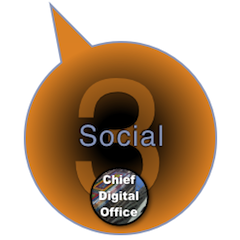
7 Social Business Transformation Tools is Part3 of the CDO Guide to Social Business for Transformation. The tools it describes encapsulate thousands of hours of hands-on experience with strategy and in-the-trenches execution work with global brands, and they explicitly address the ins and outs of people, process and technology. Part3 includes links to tools’ full versions, so CDOs can use it as a dashboard.
The Guide to Social Business for Digital Transformation helps Chief Digital Officers to understand and act on rapidly improving stakeholder relationships, productivity and business performance. The Social Business Competency Center has even more resources. The Chief Digital Office has other competency centers in Mobile, Big Data & Analytics and Ecommerce.
[…]
Empowered customers and omni-channel commerce are mirrors of each other, and both are transforming “retail.”
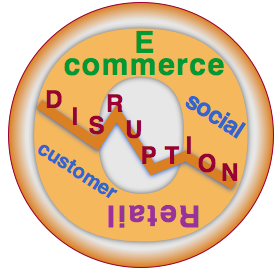 [UPDATED] Connected customers have the Internet in their pockets and use mobile and other devices in all stages of conceptualizing, considering, evaluating, buying and using purchased products and services. These customers want to interact with firms and brands in a seamless experience that features single sign-on as an entry point; they want the firm to respond using their individual data when that makes interacting more valuable. Omni-channel commerce refers to a collection of technologies, practices and strategies firms use to provide the personal individualized experience that connected customers expect. [UPDATED] Connected customers have the Internet in their pockets and use mobile and other devices in all stages of conceptualizing, considering, evaluating, buying and using purchased products and services. These customers want to interact with firms and brands in a seamless experience that features single sign-on as an entry point; they want the firm to respond using their individual data when that makes interacting more valuable. Omni-channel commerce refers to a collection of technologies, practices and strategies firms use to provide the personal individualized experience that connected customers expect.
IBM’s 2012 study of retail customers in eight mature economies (Australia, Canada, France, Italy, Japan, Spain, the UK and the USA) and seven growth economies (Argentina, Brazil, Chile, China, Colombia, Mexico and South Africa) lays bare that the retail “shopping” experience has shifted profoundly, although you wouldn’t know it by looking at most offline or online retailers’ presences. The paper, “Winning over the empowered consumer: Why trust matters,” is a call to […]
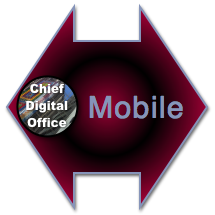 Ubiquitous Computing Primer reveals mobile’s ultimate business context and enables astute digital executives to create a whole new layer of value from their mobile investments. “Mobile” is far more important than launching smartphone and tablet apps because “smart” devices will interact with each other to provide a new level of capability and customer experience. This primer is a very brief treatment of a complex subject, so follow its links to drill down. Ubiquitous Computing Primer reveals mobile’s ultimate business context and enables astute digital executives to create a whole new layer of value from their mobile investments. “Mobile” is far more important than launching smartphone and tablet apps because “smart” devices will interact with each other to provide a new level of capability and customer experience. This primer is a very brief treatment of a complex subject, so follow its links to drill down.
In 2013, smartphones and tablets imply that people are interacting with each other and “the Internet,” but “mobile” is becoming a “feature” of all kinds of devices and products in a phenomenon called “ubiquitous computing.”
Ubiquitous Computing Primer is Part1 of The CDO Guide to Mobile for Digital Transformation.
[…]
 I covered the Federal Reserve Bank of Chicago Economic Forecast last week, where all speakers issued this refrain: “More of the same.” Key economic indicators have been stuck in neutral—the proverbial “sideways” movement—so the consensus in the room was one of faint frustration tempered by gratitude. Everyone had lived through worse. I covered the Federal Reserve Bank of Chicago Economic Forecast last week, where all speakers issued this refrain: “More of the same.” Key economic indicators have been stuck in neutral—the proverbial “sideways” movement—so the consensus in the room was one of faint frustration tempered by gratitude. Everyone had lived through worse.
The current “recovery” is underperforming any other in recent memory according to many measures, especially employment.
The conference was very well organized and featured expert presenters. Reading between the lines, I perceive significant opportunity that will surprise most people. After my notes of speakers’ remarks, I’ll share my thoughts on 2013’s opportunity that is evident when one regards “the economy” from a different point of view.
Everyone wonders what kind of presents we will open in 2013 (right).
[…]
 Recent coverage has increased my doubts in Facebook’s management team, whose failure to capitalize on its unique assets looks increasingly likely. In the Facebook As Investment trilogy, I examined Facebook through three different lenses and voiced my doubts about its management team’s ability to realize the company’s fantastic potential. Many of CSRA’s clients have invested significantly in Facebook presences, and I am not predicting the site’s demise, but I question its long-term viability. Brands face two types of immediate risk: erratic technology/functionality changes to “add value” with features—and lack of innovation due to management team paralysis. Facebook Page owners and individual users may be inconvenienced, but nothing drastic will happen right away. As a related issue, Facebook’s experience may presage a Web 2.0 startup bubble bursting. After a summary of danger signs, I’ll recommend how you can minimize your inconvenience due to Facebook’s gyrations. Recent coverage has increased my doubts in Facebook’s management team, whose failure to capitalize on its unique assets looks increasingly likely. In the Facebook As Investment trilogy, I examined Facebook through three different lenses and voiced my doubts about its management team’s ability to realize the company’s fantastic potential. Many of CSRA’s clients have invested significantly in Facebook presences, and I am not predicting the site’s demise, but I question its long-term viability. Brands face two types of immediate risk: erratic technology/functionality changes to “add value” with features—and lack of innovation due to management team paralysis. Facebook Page owners and individual users may be inconvenienced, but nothing drastic will happen right away. As a related issue, Facebook’s experience may presage a Web 2.0 startup bubble bursting. After a summary of danger signs, I’ll recommend how you can minimize your inconvenience due to Facebook’s gyrations.
[…]
 This week Twitter and LinkedIn canceled their agreement for easy cross-posting, which begot numerous indignant comments from people who seemed to have forgotten that they were using free infrastructure. Social business platforms are built and managed by venture-backed firms that need to execute on evolving business models, so we can all expect sudden changes from any and all. However, with some foresight and preparation you and your firm can minimize disruptions, which we’ll cover here. Even better, the LinkedIn-Twitter dustup provides strategic insights into how to operate within the digital social ecosystem, and we’ll address those, too. This week Twitter and LinkedIn canceled their agreement for easy cross-posting, which begot numerous indignant comments from people who seemed to have forgotten that they were using free infrastructure. Social business platforms are built and managed by venture-backed firms that need to execute on evolving business models, so we can all expect sudden changes from any and all. However, with some foresight and preparation you and your firm can minimize disruptions, which we’ll cover here. Even better, the LinkedIn-Twitter dustup provides strategic insights into how to operate within the digital social ecosystem, and we’ll address those, too.
[…]
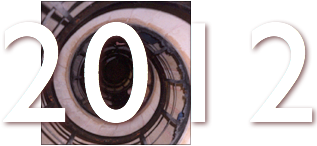 To kick off Q3 2012, CSRA unveiled a new web presence that introduces new features to educate executives about social business—and creates one source to access CSRA thought leadership and to interact with us. Existing blogs will remain up, but their roles and functionality have been tweaked. Read on for a summary of the changes and how you can use them to raise your game in social business. To kick off Q3 2012, CSRA unveiled a new web presence that introduces new features to educate executives about social business—and creates one source to access CSRA thought leadership and to interact with us. Existing blogs will remain up, but their roles and functionality have been tweaked. Read on for a summary of the changes and how you can use them to raise your game in social business.
[…]
2010 Year In Review Initial Glimmers of Social Business is the Editor’s Choice of the Global Human Capital Journal—The Best Strategy, Tactics, Case Studies and Insights of 2010
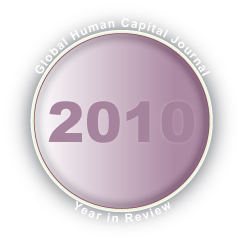 Compared to its progenitors 2009 and 2008, 2010 was a relatively calm year because the amplitude of market gyrations was clearly less, and businesses began to find a new floor on which to build stakeholder expectations. Although I watched with high interest the unfolding drama in Europe, I didn’t have the time to conduct the research necessary to do a rigorous interpretation. I did publish a reflection in January, which is not included in this year in review. However, 2010 marked a major turning point in the adoption of social technologies: the recognition that analysis and strategy were necessary to achieve consistent results with social initiatives. Compared to its progenitors 2009 and 2008, 2010 was a relatively calm year because the amplitude of market gyrations was clearly less, and businesses began to find a new floor on which to build stakeholder expectations. Although I watched with high interest the unfolding drama in Europe, I didn’t have the time to conduct the research necessary to do a rigorous interpretation. I did publish a reflection in January, which is not included in this year in review. However, 2010 marked a major turning point in the adoption of social technologies: the recognition that analysis and strategy were necessary to achieve consistent results with social initiatives.
2010 Macro trends
Social has been in adolescence up through 2009-2010 in which “being on Facebook” was an end in itself, agencies produced vapid content and little interaction happened because people won’t interact when brands are talking at them and not listening. People feel it when a […]
In the knowledge economy, people are motivated by greater autonomy, mastery, and purpose—not by carrots or sticks.. connectivity is second only to a water pump in its significance to a village.. It will not be enough, as it was back in the early Web, to just leave a website lying around to be found. Business has to become a travelling exhibit, a movable market stall that can be adjusted and placed wherever people are or want to be.. Marketers have begun to view social networks as a significant marketing contact point (and perhaps even more important than traditional channels) for procuring consumer data and knowledge.. people are diving into the Web 2.0 and 3.0 pools before they even know with whom they are swimming.. In 2010 we will see more public agencies taking risks to engage in this sort of “flat” information sharing and insight gathering.. sociology will rapidly become the new economics. […]
|
|



 [UPDATED] Connected customers have the Internet in their pockets and use mobile and other devices in all stages of conceptualizing, considering, evaluating, buying and using purchased products and services. These customers want to interact with firms and brands in a seamless experience that features single sign-on as an entry point; they want the firm to respond using their individual data when that makes interacting more valuable. Omni-channel commerce refers to a collection of technologies, practices and strategies firms use to provide the personal individualized experience that connected customers expect.
[UPDATED] Connected customers have the Internet in their pockets and use mobile and other devices in all stages of conceptualizing, considering, evaluating, buying and using purchased products and services. These customers want to interact with firms and brands in a seamless experience that features single sign-on as an entry point; they want the firm to respond using their individual data when that makes interacting more valuable. Omni-channel commerce refers to a collection of technologies, practices and strategies firms use to provide the personal individualized experience that connected customers expect. Ubiquitous Computing Primer reveals mobile’s ultimate business context and enables astute digital executives to create a whole new layer of value from their mobile investments. “Mobile” is far more important than launching smartphone and tablet apps because “smart” devices will interact with each other to provide a new level of capability and customer experience. This primer is a very brief treatment of a complex subject, so follow its links to drill down.
Ubiquitous Computing Primer reveals mobile’s ultimate business context and enables astute digital executives to create a whole new layer of value from their mobile investments. “Mobile” is far more important than launching smartphone and tablet apps because “smart” devices will interact with each other to provide a new level of capability and customer experience. This primer is a very brief treatment of a complex subject, so follow its links to drill down. I covered the Federal Reserve Bank of Chicago Economic Forecast last week, where all speakers issued this refrain: “More of the same.” Key economic indicators have been stuck in neutral—the proverbial “sideways” movement—so the consensus in the room was one of faint frustration tempered by gratitude. Everyone had lived through worse.
I covered the Federal Reserve Bank of Chicago Economic Forecast last week, where all speakers issued this refrain: “More of the same.” Key economic indicators have been stuck in neutral—the proverbial “sideways” movement—so the consensus in the room was one of faint frustration tempered by gratitude. Everyone had lived through worse. This week Twitter and LinkedIn canceled their agreement for easy cross-posting, which begot numerous indignant comments from people who seemed to have forgotten that they were using free infrastructure. Social business platforms are built and managed by venture-backed firms that need to execute on evolving business models, so we can all expect sudden changes from any and all. However, with some foresight and preparation you and your firm can minimize disruptions, which we’ll cover here. Even better, the LinkedIn-Twitter dustup provides strategic insights into how to operate within the digital social ecosystem, and we’ll address those, too.
This week Twitter and LinkedIn canceled their agreement for easy cross-posting, which begot numerous indignant comments from people who seemed to have forgotten that they were using free infrastructure. Social business platforms are built and managed by venture-backed firms that need to execute on evolving business models, so we can all expect sudden changes from any and all. However, with some foresight and preparation you and your firm can minimize disruptions, which we’ll cover here. Even better, the LinkedIn-Twitter dustup provides strategic insights into how to operate within the digital social ecosystem, and we’ll address those, too. To kick off Q3 2012, CSRA unveiled a new web presence that introduces new features to educate executives about social business—and creates one source to access CSRA thought leadership and to interact with us. Existing blogs will remain up, but their roles and functionality have been tweaked. Read on for a summary of the changes and how you can use them to raise your game in social business.
To kick off Q3 2012, CSRA unveiled a new web presence that introduces new features to educate executives about social business—and creates one source to access CSRA thought leadership and to interact with us. Existing blogs will remain up, but their roles and functionality have been tweaked. Read on for a summary of the changes and how you can use them to raise your game in social business. Compared to its progenitors 2009 and 2008, 2010 was a relatively calm year because the amplitude of market gyrations was clearly less, and businesses began to find a new floor on which to build stakeholder expectations. Although I watched with high interest the unfolding drama in Europe, I didn’t have the time to conduct the research necessary to do a rigorous interpretation. I did publish a reflection in January, which is not included in this year in review. However, 2010 marked a major turning point in the adoption of social technologies: the recognition that analysis and strategy were necessary to achieve consistent results with social initiatives.
Compared to its progenitors 2009 and 2008, 2010 was a relatively calm year because the amplitude of market gyrations was clearly less, and businesses began to find a new floor on which to build stakeholder expectations. Although I watched with high interest the unfolding drama in Europe, I didn’t have the time to conduct the research necessary to do a rigorous interpretation. I did publish a reflection in January, which is not included in this year in review. However, 2010 marked a major turning point in the adoption of social technologies: the recognition that analysis and strategy were necessary to achieve consistent results with social initiatives.